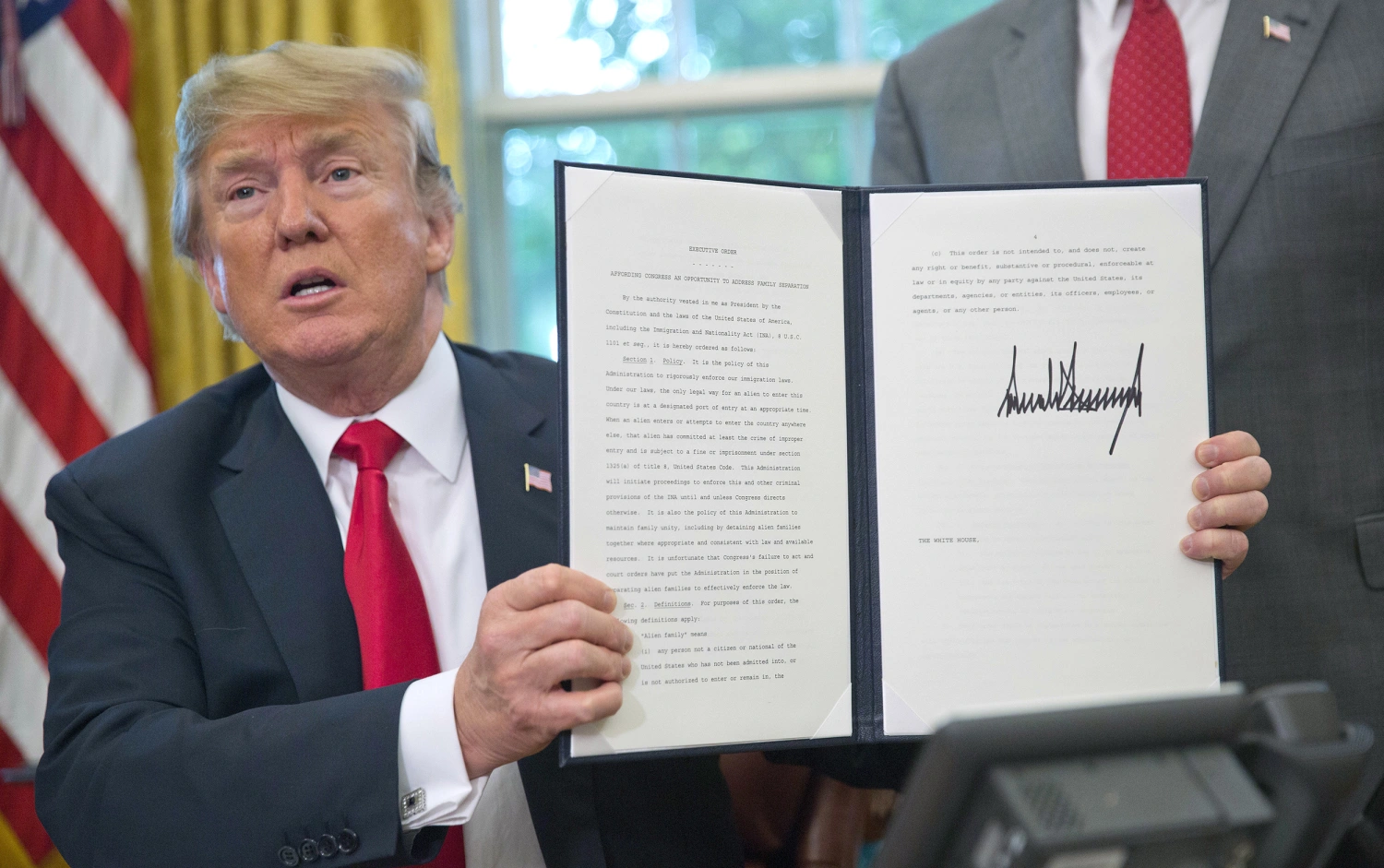What to Expect from Trump’s Immigration Policies in 2025!

Washington, D.C. – As former President Donald Trump prepares to take office on January 20, 2025, potential shifts in U.S. immigration and asylum policies are expected. Many migrants and advocacy groups are bracing for swift changes that could impact millions of undocumented individuals, asylum seekers, and green card holders.
The Importance of Accurate Information
In times of uncertainty, misinformation spreads quickly, leading to unnecessary fear and confusion. It is crucial to rely on credible sources and avoid spreading unverified claims, particularly from social media. Before sharing information, ensure its accuracy to prevent panic and misinformation.
How to Prepare for Possible Immigration Policy Changes
As the new administration takes office, here are essential steps to help migrants prepare:
- Consult an Immigration Lawyer – Seek legal advice to explore your options for staying in the U.S.
- Know Your Rights – Learn what to do if confronted by immigration officers (ICE) or local law enforcement.
- Apply for Legal Status – If eligible, apply now for a green card, work permit, or other legal status. If you are completely undocumented, consult a lawyer before initiating any process.
- Prepare for Emergencies – Plan who will care for your children and manage your finances if needed.
- Safeguard Important Documents – Secure your passport, birth certificate, work authorization, and immigration records in a safe location. If you have lived in the U.S. for over two years, keep evidence of your residency.
- Reconsider International Travel – If you must travel abroad, return to the U.S. before January 20, 2025, as policy changes may increase reentry risks.
- Follow the Law – Any criminal record can increase the risk of deportation.
- Seek Emotional and Mental Health Support – Immigration concerns can be overwhelming.
- Prioritize your mental health and seek support if needed.
- Apply for Citizenship – If you have a green card and meet eligibility requirements, now is the time to apply for U.S. citizenship.
Understanding What Might Happen
While exact policy changes remain uncertain, Trump’s previous administration and recent public statements provide insight into potential priorities:
- Some changes will be immediate – The president can issue executive orders without congressional approval, affecting enforcement priorities and humanitarian programs.
- Other changes will take time – Some policies require congressional approval, which could take months or years to pass.
- Legal challenges may slow down new policies – Courts could delay or block proposed immigration restrictions if they violate constitutional rights or existing laws.
The following analysis is based on publicly announced policies and previous administrative actions, but final decisions will not be official until after January 20, 2025.
Expected Executive Actions on Day One
The Trump administration has outlined key immigration priorities for immediate action upon taking office. These may be enforced through executive orders on January 20, 2025.
Mass Deportation and Immigration Raids
Trump has pledged to deport “millions” of undocumented immigrants in 2025. His team announced that enforcement operations will first target individuals with criminal records or prior deportation orders, before expanding to others without legal status.
- Immigration and Customs Enforcement (ICE) operations could increase in workplaces, homes, and public areas.
- Logistical challenges (such as detention space and court backlogs) may slow down mass deportations.
What You Can Do:
- Learn about your rights if confronted by ICE.
- Prepare a family emergency plan.
- Keep your identification and immigration documents safe.
- Learn what to do if your workplace is raided and what your employer must know.
Other Immigration Policy Changes That May Take Effect Quickly
Humanitarian Parole Programs
If you entered the U.S. through a humanitarian parole program, your status may be at risk. While the new administration may not cancel existing parole approvals, it could stop renewals and new applications.
What You Can Do:
- Consult a lawyer about potential options, such as Temporary Protected Status (TPS) or other legal pathways.
- Avoid international travel until discussing risks with an attorney.
Asylum and Refugee Policies
The Trump administration has indicated tighter asylum restrictions, including:
- Stricter eligibility requirements
- Returning asylum seekers at the border
- Expanding the “Remain in Mexico” (MPP) policy
These measures could increase family separations and limit access to protection for vulnerable migrants.
What You Can Do:
- If applying for asylum, consult a lawyer immediately.
- Organize your case documents and follow policy updates.
CBP One Program Changes
Migrants using the CBP One app to schedule border entry may face disruptions. The program could be suspended, canceling scheduled appointments.
What You Can Do:
- Stay updated on app-related announcements.
- Explore alternative legal pathways with an immigration attorney.
Muslim and Refugee Travel Bans
During his first presidency, Trump restricted travel from several Muslim-majority nations. He has pledged to expand these restrictions.
What You Can Do:
- Avoid unnecessary international travel.
- Ensure your visa and passport are valid.
- Follow policy updates on travel restrictions.
Changes That May Take Longer to Implement
Some policies require months or years to take effect due to legal, logistical, or congressional approval challenges.
DACA (Deferred Action for Childhood Arrivals)
If you are a DACA recipient, your status may not be renewed. Losing DACA could impact work permits and deportation protections.
What You Can Do:
- Renew your DACA as soon as possible if eligible.
- Consult a lawyer about alternative legal pathways.
Temporary Protected Status (TPS)
Trump may end TPS for certain nationalities, leaving thousands without legal protection.
What You Can Do:
- Renew your TPS before expiration.
- Explore other legal options with an attorney.
Family Detention Centers
Trump has announced plans to increase immigrant detention facilities, particularly for families.
What You Can Do:
- Prepare an emergency plan with family members.
- Gather essential legal documents in case of detention.
Visa and Green Card Programs
- Family-based visas may be restricted, making reunification harder.
- Public charge rules could return, affecting immigrants using public benefits.
- Diversity Visa Lottery may be eliminated.
What You Can Do:
- Consult an immigration lawyer for early application strategies.
- File visa and status applications as soon as possible.
What Is Unlikely to Change?
Certain protections remain under federal law or constitutional rights, making rapid changes unlikely.
- Birthright Citizenship: Trump has vowed to end automatic U.S. citizenship for children born to undocumented parents. However, this right is protected under the U.S. Constitution, making changes highly difficult.
- Existing Refugee and Asylum Status: Those already granted asylum or refugee status are unlikely to be affected.
You Are Not Alone
Immigration lawyers and advocacy groups are working tirelessly to protect migrant rights. If you feel anxious or uncertain, legal and community support is available.
This report is based on publicly available policies and statements publish on HelloAmerica and will be updated as new information emerges..



